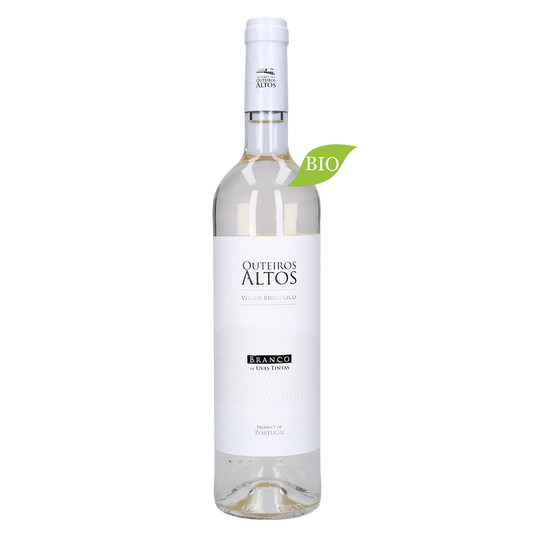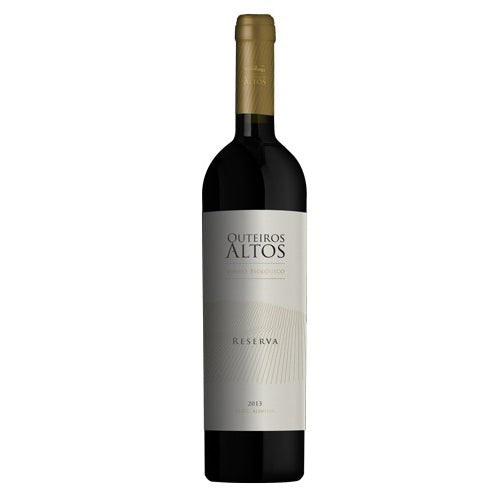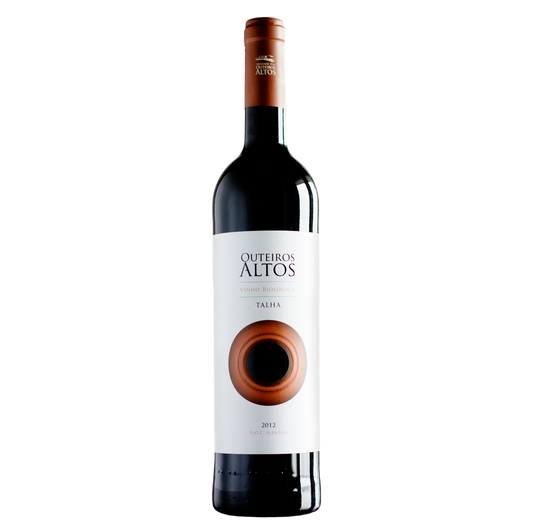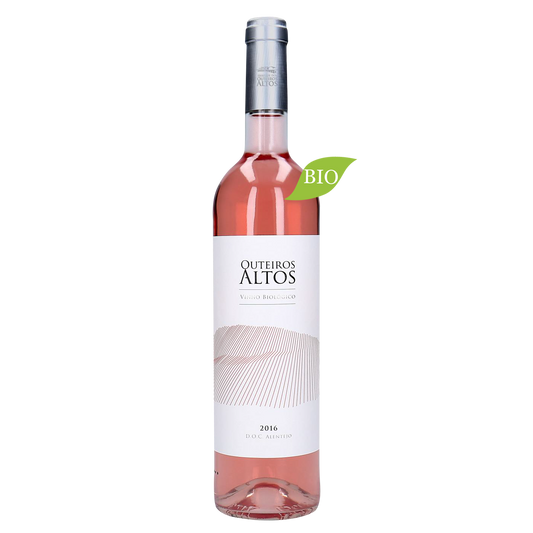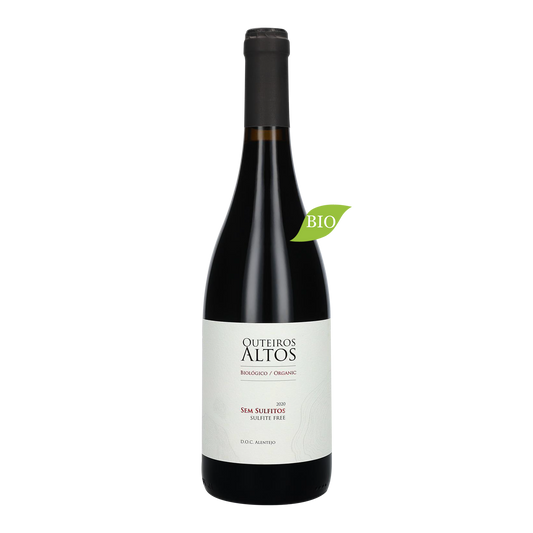Jorge Cardoso and Fernanda Rodrigues were colleagues in Vila Real, where they studied agronomy and became enchanted by viticulture during their tours of the Douro. After a few years, they decided to look for the perfect place for their family wine production project. Jorge, born in Lisbon, and Fernanda, from the Douro, had no connection with the Alentejo, except for their appreciation of the region's wines. They pooled their savings and set off in search of land in Alto Alentejo, and it was love at first sight when they found Herdade dos Outeiros Altos.
Located in Estremoz, north of Serra d'Ossa, Herdade dos Outeiros Altos is set in a natural and semi-wild landscape, surrounded by cork oak forests. The vines, exclusively planted with native Portuguese varieties, are organically cultivated.
Jorge and Fernanda believe in producing excellent, healthy and environmentally friendly products, without resorting to pesticides, herbicides, synthetic fertilizers or synthetic additives that could alter the essence of their wines. Principles that extend to winemaking. Unsurprisingly, its inaugural wine, in 2012, was the first DOC Alentejo wine with organic and vegan certification.
The vineyards of Herdade dos Outeiros Altos are located in the central region of Alentejo (Sub-Region of Borba), in shale deposits and at altitudes ranging between 300 and 350 meters, at the foot of Serra d'Ossa. The region's special microclimate, influenced by the mountains, provides slightly higher rainfall rates than the average and sunshine levels slightly lower than the Alentejo average. All in all, the wines are especially fresh and elegant.
The vineyards occupy a total area of 6 hectares, divided into three plots with different sun exposures and altitudes.
The red varieties include Trincadeira, Alfrocheiro, Aragonês, Tinta Caiada, Alicante Bouschet and Touriga Nacional, while the white varieties are Antão Vaz and Arinto. The production of these grapes is low, varying between 4 and 6 tons per hectare, but it is balanced, given the austerity provided by the soils and climate.
For the couple, all this is seen as natural, reflecting the motto that "wine is mainly made in the vineyard". As each plot is different, they practice "precision harvesting", selecting each variety, by areas within each vineyard plot, based on the state of maturation and the intended wine.
As an additional mark of their willingness to experiment, the couple also practice "field blending", choosing different grape varieties to ferment together in clay pots, instead of mixing them after fermentation, "it's like making a perfume", they say. The decision on the wines is made in the field, tasting the grapes and building the wines between the vine rows before the harvest.
Combining tradition and modernity, the winemaking process takes place in stainless steel vats and vats, as well as in old restored clay pots. Some wines also undergo aging in used oak barrels. Nothing is left to chance and the attention to detail, which makes all the difference, is based on sensitivity combined with technical knowledge.
However, it is the carving work that distinguishes them. For Jorge and Fernanda, this archaic winemaking method represents the essence of Alentejo culture. Technical, labor-intensive and demanding in terms of manpower, it is extremely simple, representing the purest way of making quality wines with unique characteristics. For all these reasons, they recovered old clay pots and produced their most distinctive wines in them.
In wine tourism, visitors have the opportunity to explore the cellar, tour the vineyards and enjoy the surrounding natural spaces, in addition to the unavoidable wine tasting. Visitors are guided by someone from the team who presents the project, highlighting the organic production method, with emphasis on the adopted viticulture and oenology. For small groups, there are options for special events, such as participation in the harvest for the talhas and the celebration of the feast of São Martinho, which includes the tasting of new wine from talha.





